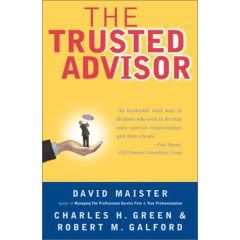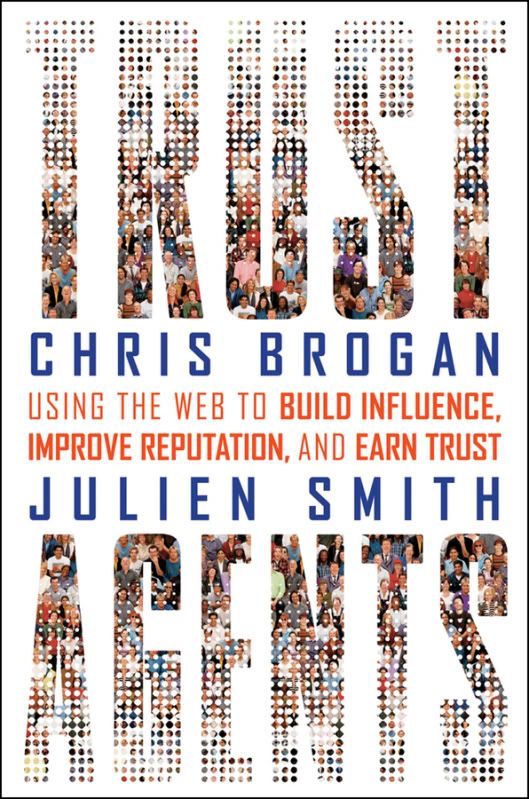It’s hard to believe three weeks have blown by since breakfast with Chris Brogan and Julien Smith, authors of Trust Agents, along with Trusted Advisor authors David Maister and Charlie Green.
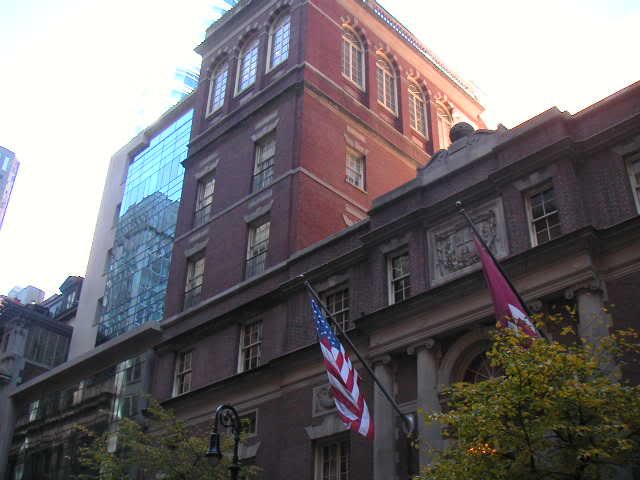
It was quite a scene.
I hoofed it over to the Harvard Club of New York from the Hotel Roger Smith in plenty of time to make the gig, only to find a whopping-ass line that started out on 44th street, did a couple of dog-legs inside the lobby, snaked down two long hallways, and then eventually dumped me into the mob scene, 300 strong, that was breakfast with my boys. Or so I thought.
I snagged my books, grabbed a cup of the Harvard Club’s best coffee, and set out to find Brogan and Smith in the sea of humanity. Not exactly what I expected, but this was my first event at the club, so I really didn’t know what I was in for.
It was pretty cool, and caused me to wonder what the hell I was doing here and how the hell I’d gotten here.
 I found Julien first who was freaking out a little bit over the enormity of the whole scene. I couldn’t blame him. The room was pretty impressive, with interior ceilings higher than my house, rich tapestries, and enormous paintings of historic Harvard alumni watching over all. The whole joint was luxuriously appointed throughout in a style and tradition reserved for the exclusive enclaves associated with old money and power, right down to a mounted bull elephant head trumpeting on the wall. Not to mention the 300 people who dropped hard cash just to see what Julien and his fellow panelists had to say. No pressure, dude.
I found Julien first who was freaking out a little bit over the enormity of the whole scene. I couldn’t blame him. The room was pretty impressive, with interior ceilings higher than my house, rich tapestries, and enormous paintings of historic Harvard alumni watching over all. The whole joint was luxuriously appointed throughout in a style and tradition reserved for the exclusive enclaves associated with old money and power, right down to a mounted bull elephant head trumpeting on the wall. Not to mention the 300 people who dropped hard cash just to see what Julien and his fellow panelists had to say. No pressure, dude.
Since I was flying solo I was able to stroll right to the front of the room and find an empty single seat in the first row, where I enjoyed the hell out of five brilliant people talking about Trust in Business in a way that defied everything I’d learned in my 25 years as a sales and marketing guy in the world of high tech manufacturing.
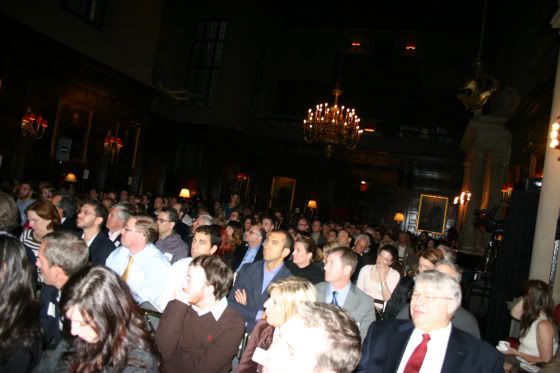
Social Media Today CEO, Robin Carey moderated a fast-paced forum, first giving the panelists five minutes to talk about trust as a component of the business relationship, each taking a run at the topic from a different angle.
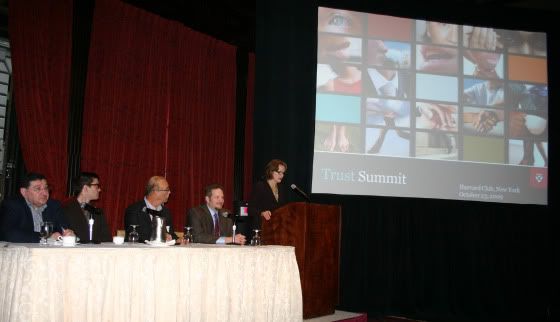
Brogan took the podium first and talked about How a Trust Agent “moves the needle”.
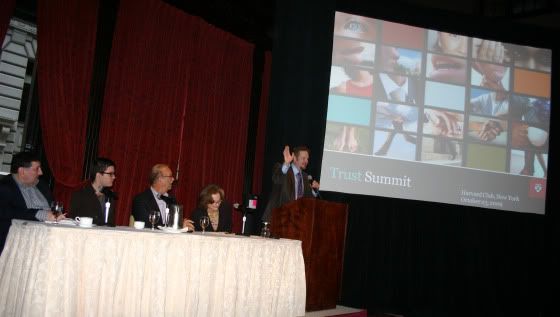
“It’s important when you look at these tools, like social media” Brogan said, “that you don’t look at them as “how many views” or “how many hits” or “how many visits to a website”, but you look at it as how many potentially sustainable relationships you can have, and what’s the yield of those relationships over time? If I [can] leave you one most important message, to me, it’s to learn that you are farmers and stewards, not machinists, and that this world of simply numbers must go. And that the new world of relationships that have numbers attached to them must come back.”
Charlie Green, recently quoted in Business Week and seen on CNBC saying “Everything the Harvard Business School has been teaching for the last 50 years…is dead wrong.” spoke to the concept “Trust: Moving Capitalism from competition to commerce”.
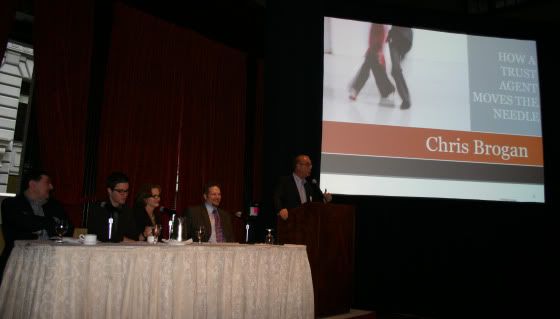
Charlie jumped right in with his smooth talking, quick-witted style. “I think my job”, he started off, “is to take Chris’ message and complicate it for the intellectual overachievers, like myself. Turn it into MBA-speak.”
“Trust at root” he continued, “is very personal and very paradoxical.”
After a dramatic pause he demonstrated. “I trust my dog with my life, but not with my ham sandwich.”
And then Charlie went on to trash everything he’d ever learned at Harvard Business School. Here are a few of his key points:
“The doctrine of competition as being central to business, is turning out to be a poisonous viewpoint.”
“We do need to get back to the notion of Commerce: The relationship between sellers and customers, between producers and buyers, and not focusing on the secondary component, the relationship between competitors.”
“The purpose of companies is not to make money; the purpose of companies is to serve society. The purpose of companies is not to make money; it’s to make wonderful things that people want to buy and improve their lives, thereby making profit in the doing.”
“Believing that the purpose of business is to make profits is like believing that the purpose of living is to eat.”
“People trust people, they don’t trust companies.”
Julien was up next to explain how Trust is a System. He talked about Trust as a system, with an order that people naturally adopt from a very young age depending on the things we’re taught, the things we experience, and the technologies to which we’re exposed, be it person-to-person, print media, television or social media.
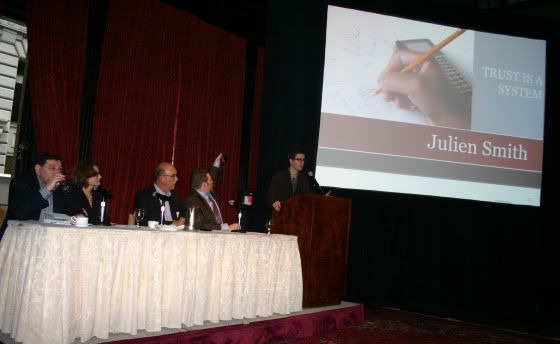
“There is a model for absolutely everything,” Julien said, “but we haven’t figured out what social media is doing. What signals it’s sending. How it’s sending those signals out. How strongly it’s sending them.”
Julien referred to the current population of social media users: “Every single one of us is making mistakes…some of us are making a few mistakes, some of us are making a lot of mistakes, and that’s perfectly fine, because we’re experimenting…so that we can end up with a new model of behavior and a new model of trust that works online for us.”
“I want to urge you to make those mistakes, and try things out. It’s only by risking the things that we have that we can get something greater for ourselves.”
Next, David Maister shared his own hilarious, sometimes self effacing personal journey to Trust, as he took his best shot at answering the question “What’s so hard about Trust?”, but not before addressing Charlie Green’s earlier comment.
“Is it true, Charlie”, Maister asked his friend with half a measure of sincerity, “that the purpose of living is not to eat?” While the room howled at his obvious distress over the thought, he confessed, “I’ve been living my life under a false illusion.”
Take a look at the panel in the following shots. Maister delivered one zinger after another, keeping the room in stitches pretty much his whole time up there.
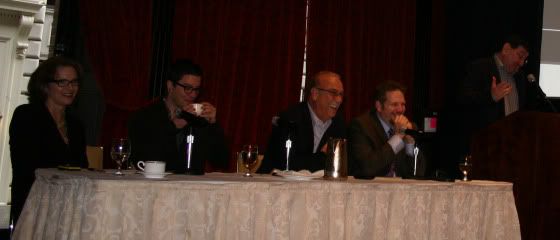
“Since we’re here sharing the platform, obviously Charlie and I subscribe to everything that Chris and Julien have written about in their book, and we certainly believe that what they’ve articulated, of the two key points, that Trust works if you are the kind of person that…can be “trustworthy”, and if you’re the kind of person, as Charlie articulates, who can also be trust-ing – which is not the same thing – but if you can be both of those things…the good things of life will come your way.”
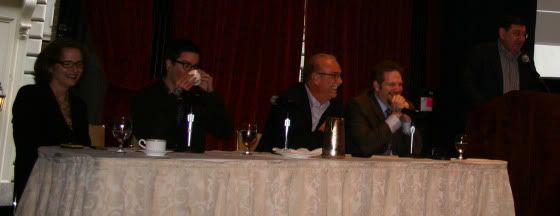
“You can’t be good at trust”, Maister continued, “unless there’s actually this fundamental thing, which is, how interested are you, actually, in other people? If [your interest] is purely instrumental – if you’re only interested in them to the extent that you will get back from them, as quickly as possible, what you want to get, it’s not going to work very well.”
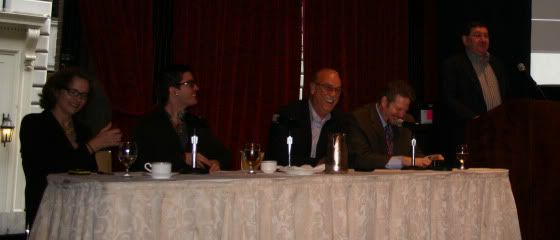
“My problem with Harvard – I was also there and I also taught there – is not the particular issue that Charlie’s on, but [while there] I received every business degree the planet has to offer, because I stayed within the university setting…but when I left the university setting, I discovered the world is filled with people! And this is not meant to be just a joke, it’s meant to be an incredibly devastating revelation.”
“What I invite you to think about” Meister concluded, “is, I think you can get better at this, but I think it takes, for many of us, and I include myself in the set, a lot of hard work. It takes a completely different mindset. I believe that it’s not just knowledge, that if I use these few tactics that it will work. I think it’s actually a skill that get’s developed with practice…and for many of us to learn how to be trustworthy and trusting is, in essence, a lifelong journey.”
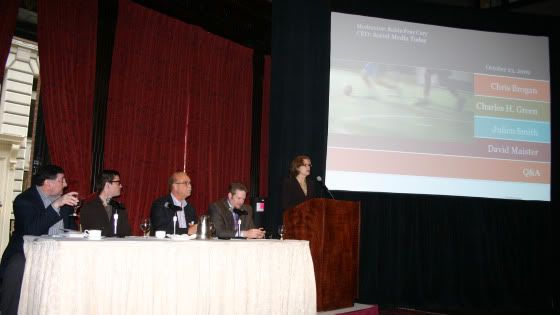
Opening remarks were followed by a little over an hour of awesome Q&A which is really captured best in the following video. A timeline of the Q&A topics follows at the end of this post in case you’d rather skip to something of particular interest, but it was all tremendously informative.
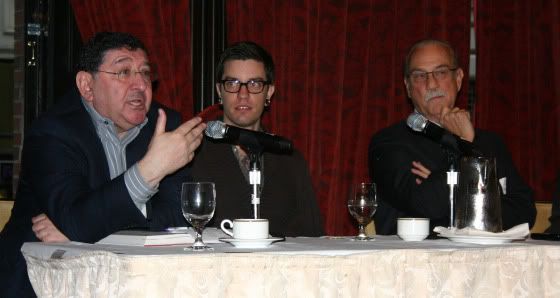
The panel concluded with an opportunity to meet the authors and other attendees, which turned out to be a pretty good time too.
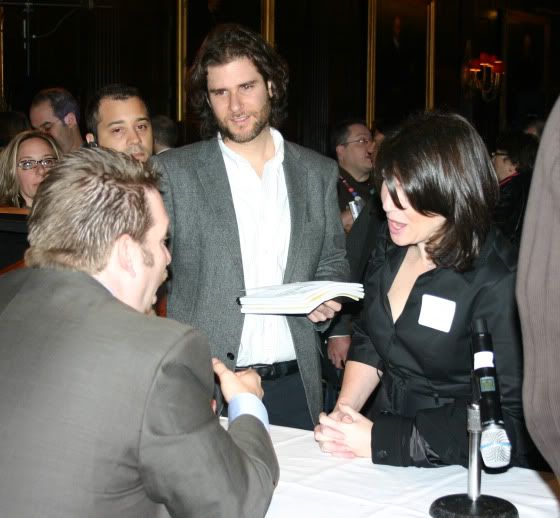
Michael Margolis, author of BELIEVE ME: A STORY MANIFESTO, looks on while Chris chats it up.
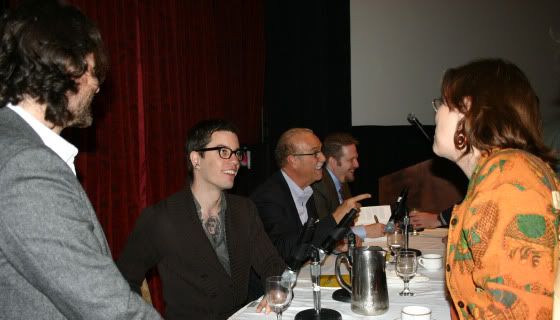
Charlie Green’s expressions are a photographer’s goldmine. Talk about animated.
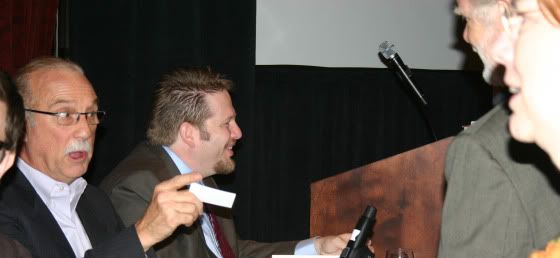
In the end I never did get the chance to catch up with Brogan and Smith the way I’d hoped to. We all had to run by the time the last books had been signed, but it was still a great time and a great excuse to spend a fun Thursday night in NYC.
Thanks to the happenin’ owner of the Serendipity Literary Agency and debut author of WRITING GREAT BOOKS FOR YOUNG ADULTS, Regina Brooks for awesome Indian at Brick Lane Curry House, and as always, to the great folks at the Hotel Roger Smith for treating me like the celebrity I ain’t.
Charlie Green has a two piece summary of the event on his blog here: Trust Summit Summary and Video – Part I. Part II is the Q&A featured earlier in this piece.
Connect with the Trust Summit panelists on Twitter:
@CharlesHGreen – Charlie Green
@ChrisBrogan – Chris Brogan
@Julien – Julien Smith
@robincarey – Robin Carey
@socialmedia2day – Social Media Today
Check out the Twitter thread of the Trust Summit at #trustsummit
Connect with me on Twitter too @donlafferty
Here’s the timeline of the Q&A in the video featured above:
1:11 -How do you put a number on the value of engagement and trust?
11:00 -What role does the fear of failure play in shutting down trust?
16:30 -What was the best response you’ve seen to a screwup?
21:00 -Doesn’t price beat trust at some level?
27:00 -Isn’t customer intimacy just one strategy, and you can only pick one?
35:00 -What kind of metrics work with non-profits?
41:00 -How do I transfer powerful online trust to an MBA-managed traditional business?
53:00 -How does a leader teach matters of virtue, in a corporation?
56:00 -How do you balance privacy versus transparency?
58:00 -Can this kind of cool event actually happen outside of Twitter?
62:00 -What’s the generational impact of all this?
65:00 -Is there a danger of giving priority to squeaky wheel twitterers?
69:00 -How can I use social media to create authenticity?
72:30 -Why do companies pay 4x to get new customers what they’d save in retention?
73:30 -Charlie describes how Chris and Julien role-modeled all this behavior in setting up this event.
